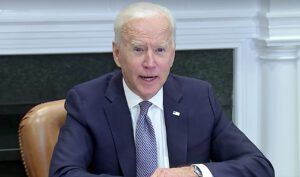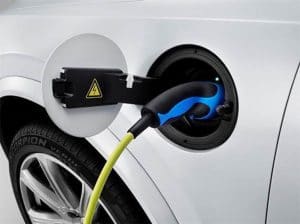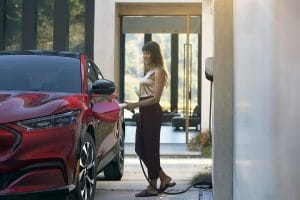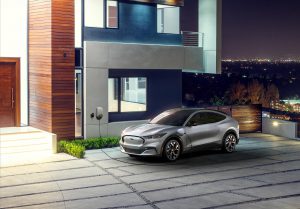
As is often the case, state governments lead the way in setting national policy — and it’s happening again.
Twelve governors sent a letter to President Joe Biden April 21 calling for federal backing to end sales of new gasoline-powered vehicles by 2035, a dramatic shift away from fossil fuels, according to a Reuters report.
The 12 states, in this case, are California, New York, Massachusetts, North Carolina, Connecticut, Hawaii, Maine, New Jersey, New Mexico, Oregon, Washington and Rhode Island. Washington just passed legislation that would ban the sale of new gas- and diesel-powered vehicles starting in 2030. California and New Jersey are in the process of trying to implement similar bans.
States leading national change
Marc Geller, Electric Auto Association vice chairman, a pro-electric vehicle group, said he’s not surprised by this action taken. States have, in the past, often adopted rules that later became the national norm.

“I live in San Francisco,” Geller said. “It’s a vanguard state. We adopt rules and get laughed at, then other states and the federal government adopt our rules. Look at indoor smoking. But I am glad to see the governor of states like North Carolina signing this letter. It shows there’s broad support for this action.”
The letter urges Biden to set standards “to ensure that all new passenger cars and light-duty trucks sold are zero-emission no later than 2035 with significant milestones along the way to monitor progress.”
It also calls for “establishing a clear regulatory path to ensuring that all vehicles sold in the United States are zero-emission, we can finally clear the air and create high-road jobs.” The governors want Biden to set standards and adopt incentives aimed at ensuring 100% zero-emission sales of medium-duty and heavy-duty vehicles by 2045.
Geller said anything that can support the adoption of plug-in EV and hybrid technology is a positive step forward for the country and the world.
Consumers need good tech options
Stephanie Brinley, IHS chief automotive analyst, said regulations are one of the main drivers of the development of EV tech and infrastructure.

“There is real consumer interest in EV adoption,” Brinley said. “But regulations are the biggest drivers of development. And we’re seeing all this new EV technology development is opening up options for consumers.”
And that’s very important, Brinley noted, as consumers won’t adopt new technologies unless the technologies meet their needs and wants. By building charging infrastructure, it becomes easier for consumers to charge to charge EVs, and this helps promote EV adoption.
“Consumers won’t buy EVs just to save the planet if the vehicles don’t meet their needs,” Brinley said. “They’ll let their neighbors buy the tech if their neighbors want to save the planet. But they’ll buy what’s best for them.”
By promoting the development EV infrastructure and technology, more options will be created for consumers. And since consumers have different needs, the more options the better.
Many national officials lobbying for new regulations

This letter comes just a few weeks after President Biden submitted a $2.3 trillion infrastructure package. Part of this plan calls for $174 billion in spending and tax credits to boost electric vehicles (EVs) and charging networks but does not call for phasing out gasoline-powered passenger vehicles.
It’s also not the first letter from a politician pushing the president to set a timeline for ending ICE vehicle sales, as a number of U.S. lawmakers have urged Biden follow California’s lead.
Last September state officials said it planned to end sales of new gas-powered passenger vehicles by 2035. Biden’s campaign said last fall he did not support California’s phase-out plan.
Manufacturers already working on EV-only future
Some OEMs, on their own, have adopted business plans that dovetail nicely with pro-EV efforts. General Motors officials went on the record in January, saying the company has set a goal to end all gasoline passenger car and truck sales by 2035.
Volvo Cars CEO Håkan Samuelsson recently said the company’s entire car line-up will be fully electric by 2030. Ford has also announced that the company’s European portfolio will also be fully electric by 2030.
The White House offered no comment on the governors’ letter, Reuters reported.
Although the White House hasn’t specifically addressed what was said in the letter, Geller said, actions taken in the past several weeks indicate the Biden administration, in a broad sense, supports the development and adoption of EV technology and the infrastructure needed to make EV tech work.
“From my point of view, all of this is a pretty good thing,” Geller said.






